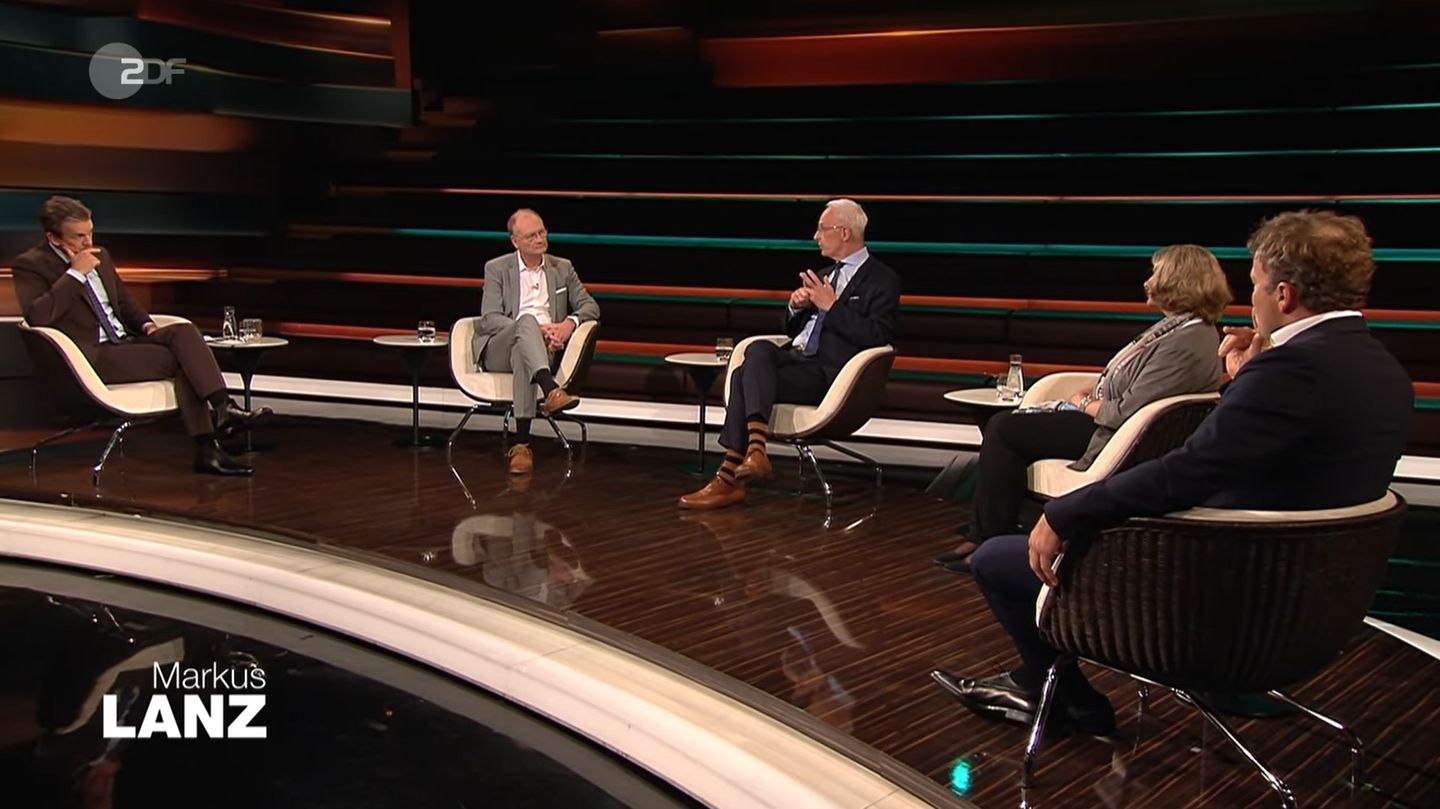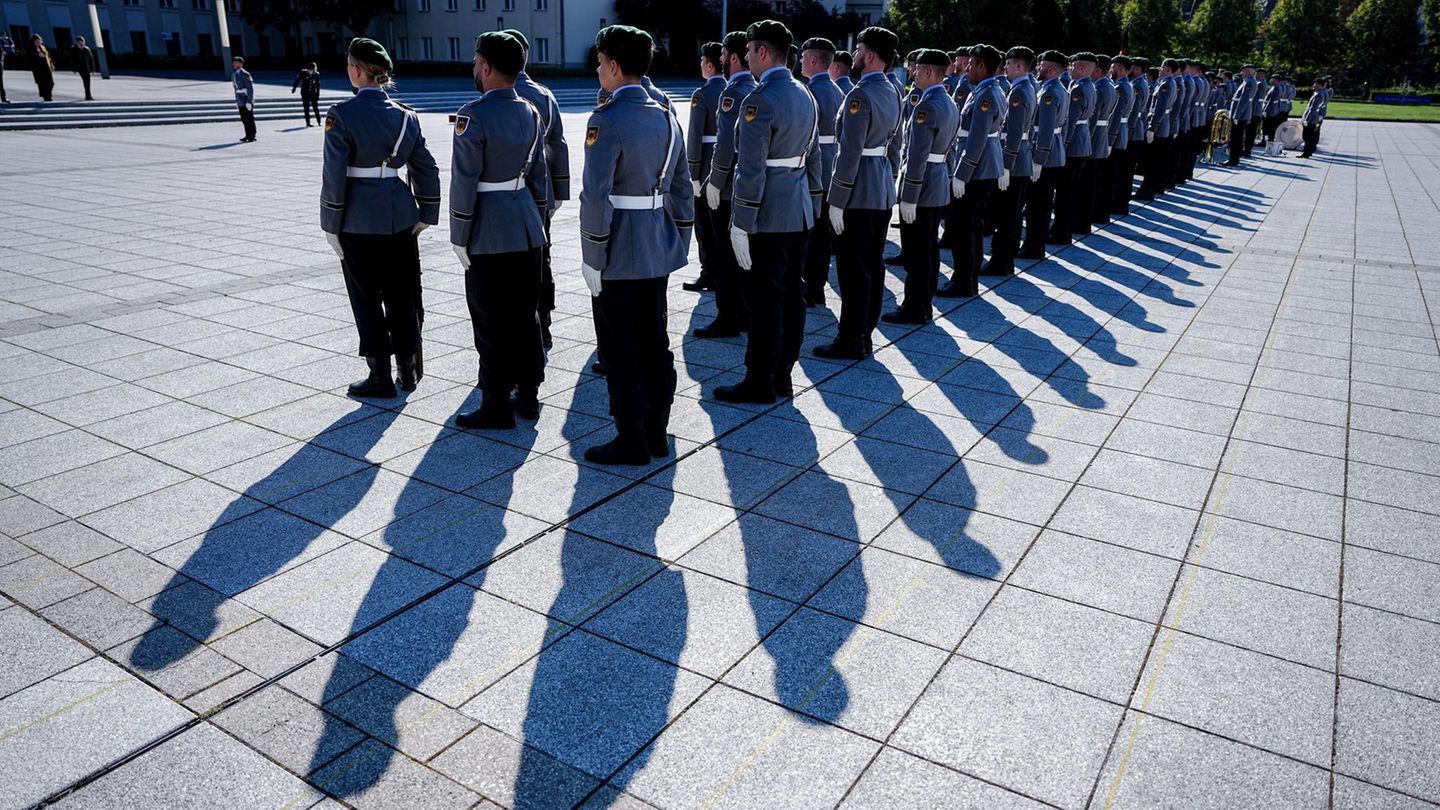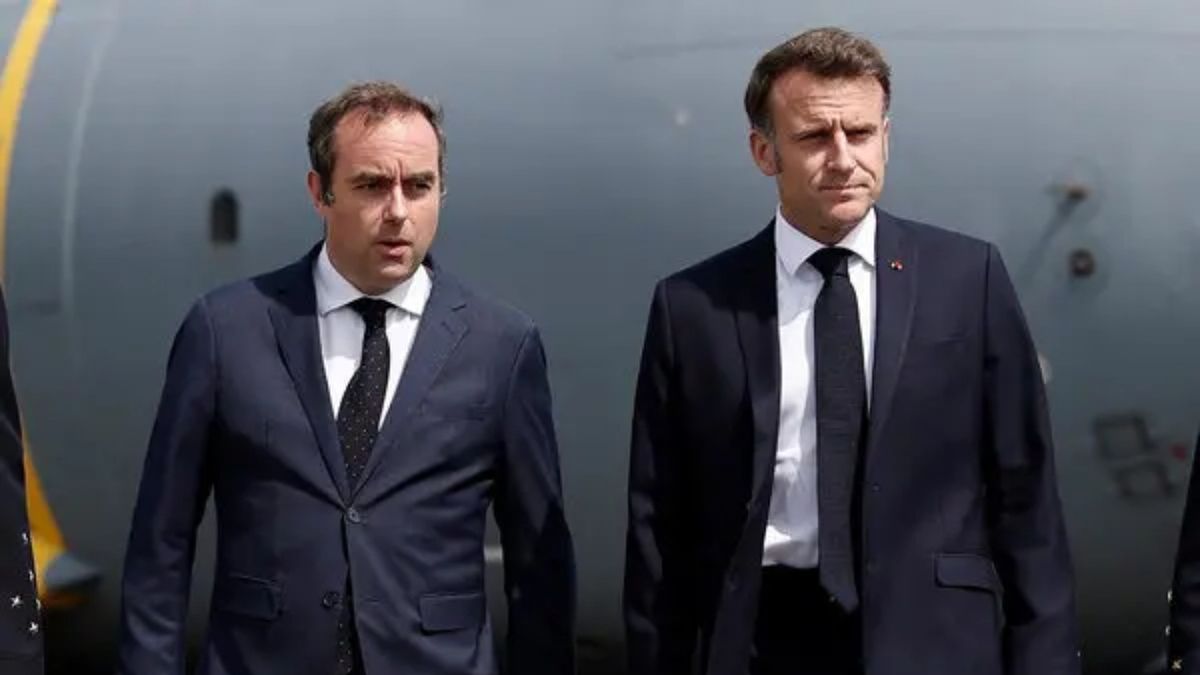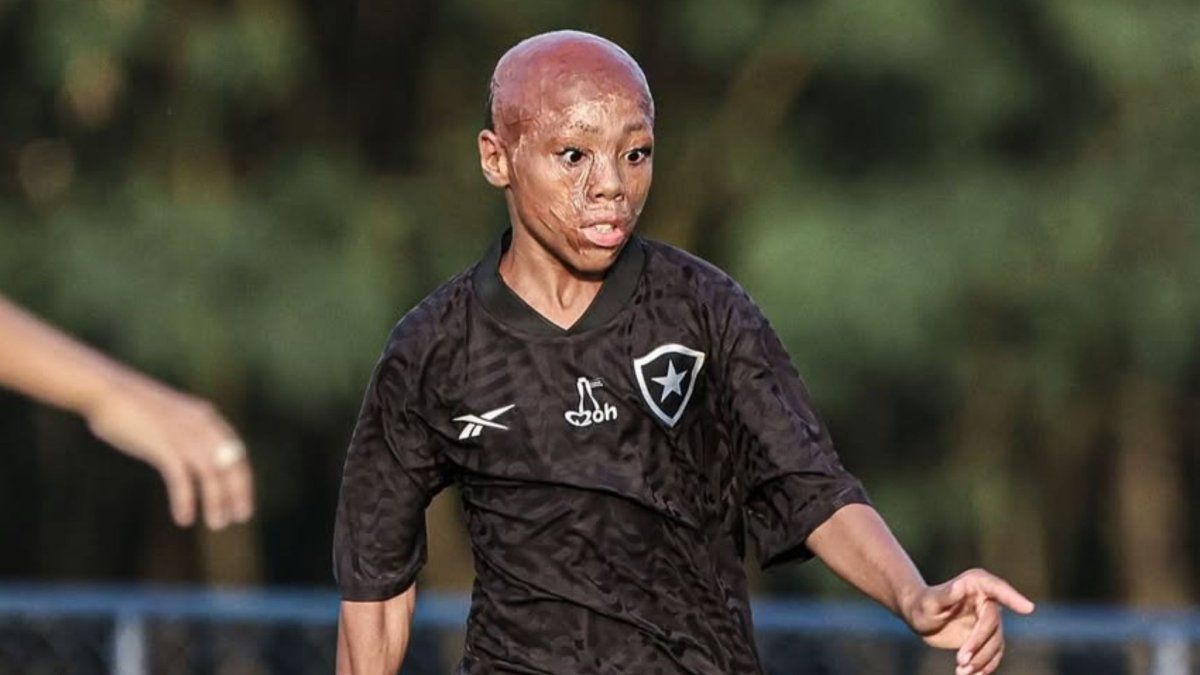Severe weather event or climate catastrophe? Those affected by the flood disaster ask themselves completely different questions on site. In the case of Markus Lanz, local politicians made it clear that there was no need for “academic debates”, but rather joint tackling. And also greater awareness among the population of natural disasters.
By Sylvie-Sophie Schindler
This is how good talk shows go. Why can’t it always be like this? Markus Lanz, who completely saturated us with corona talks, sent a special on the flood disaster in Germany on Tuesday evening – and exchanged ideas with his cleverly selected guests in a way that has unfortunately become increasingly rare: without blah, without thrashing phrases, without the will to profile and without ideological mantras. It was about the matter. And the matter is serious. Very seriously. The extent of the flooded areas is staggering. Should it really have come to that? How could it have been prevented? Why didn’t warning systems work?
The three invited mayors from the cities of Trier, Grimma and Sinzig were particularly impressive. The absence of federal politicians in election campaign mode did the show particularly well. Local politics is very close to people. And simply: down to earth. “People now want to know from me what you are doing,” reported Trier’s Mayor Wolfram Leibe. Even if it is important to talk about climate change, there is currently no need for “academic debates”.
This is what the guests at “Markus Lanz” said
The guests (in alphabetical order) and their most important statements:
Matthias Berger, Lord Mayor of Grimma, remembers, because during the flood of the century in August 2002, Grimma was the most severely damaged municipality on the Mulde: “Twenty years ago we were innocent, we only knew something like that from television.” Since then, a lot has been invested in protective measures, including a modern siren system. The Vb-Wetterlage (spoken: Five-B-Wetterlage) led to severe flooding along the Saale and Elbe in 2002 and 2013. “So we react very differently when we hear Vb than elsewhere,” he explained. Vb had also been reported before the current flood disaster. He explains why you didn’t react accordingly: “You couldn’t classify it.” During the reconstruction, he advised, one should consider whether it would be better to do without it in some places: “Everything does not have to be the same as before.”
Axel Bojanowski, science journalist, came under severe criticism with the public service media. They had not warned sufficiently in advance: “Stormy was the hardest word I heard in this context.” He also takes a critical view of the current debates: Even if climate change is real, “such severe weather” does not need the term “climate catastrophe”: “You have to reckon with such weather in Germany.” However, in many districts there is “no memory for disasters”, which is not surprising, because some floods were centuries ago and sometimes occurred in the Middle Ages. He made it clear: “Even if thunderstorms are part of climate change, we must not talk ourselves out of it.” Politicians would make it too easy for themselves. With regard to warning systems, one can learn from Mozambique: “People come by bike and tell everyone who lives there.” Since then there have been no more deaths.
Andreas Geron, Mayor of Sinzig (Rhineland-Palatinate) reported on the tragic consequences of the flood disaster in the lower Ahr valley: “That blew our imagination, we are still looking for a real name; the catastrophe only partially hits it.” Most of them would have underestimated the danger, however: “We went to the people and announced the flooding, so it was said, oh well, nothing will happen to us.” How it came to the 14 dead who lived in a nursing home has not yet been clarified. He refused to respond to the accusation of “disaster dementia”: “We do have a memory for that.” Only if the flood disasters in an area were more than 10,000 years ago should one not blame anyone for their bad memory.
Wolfram Leibe, Lord Mayor of Trier, described the effects of the storm disaster on the Trier region, in which over a thousand people had to be brought to safety: “The water came from all sides, we couldn’t even use lifeboats.” That was direct violence. “You’re at the mercy.” Still, one was prepared. There were no injuries or deaths. He pointed out that one was asked on site and had to check what had to be done. And warned against getting lost in debates about climate change: “Climate change is not a protective argument.”
Lamia Messari-Becker, civil engineer, spoke of past failures: “We started adapting too late.” It is crucial not to build against, but with nature. And with concepts that prevent future disasters. As an example, she cited so-called “sponge cities”, where the surfaces let rainwater through. We also have to rely more on deciduous trees, as these would store more water. “At the moment, it is important to adapt the infrastructure quickly. It must be ensured that the electricity and water supply can continue to run in such disaster situations.
Sven Plöger, meteorologist, knew about the threatening situation, but explained that it was still difficult to estimate in advance what amounts of rain would come down. Therefore, he had to carefully weigh up how to announce the impending storm: “You could certainly have given more gas in communication.” For most people in Germany, however, it is difficult to imagine that such a catastrophe could happen: “We have a very strong assessment problem. There are video recordings of people who got into the water when the catastrophe was already in full swing . How can you do that? Why? “
Tina Rass, flood victim from Rösrath (North Rhine-Westphalia) reported how the masses of water first penetrated the cellar of their house and then rose higher and higher. The nearby river, usually seventy centimeters, rose to five meters. “We couldn’t save anything, only save ourselves,” she said. Their three cars were also swept away. “All lost, all gone.” There were deaths in the neighborhood. There were no sirens and no other indications of the danger: “We were not warned.”
Beate Ratter, Geographer, addressed the “human factor”: “We have the problem: Are people open to hearing what meteorologists warn about?” She feels reminded of the storm surge in Hamburg in 1962: “There was also a warning. The right words were also said. But it didn’t go through.” People’s risk awareness is based on experiences they have already made: “And we have never had such an experience.” That is the “classic black swan”, something that one cannot imagine.
Dirk Steffens, science journalist, was clearly angry: “I’m annoyed by politics, for thirty years of delay talk.” His criticism was particularly directed at Armin Laschet. Enough is not happening while climate change continues and the catastrophes become greater. It must be clear to everyone: “Environmental protection is cheaper than environmental repair.” He also addressed other factors such as forest policy and the sealing of the areas – four hectares a day in Germany: “We have lost two thirds of the floodplain areas.” In terms of prevention, the focus was on Tokyo, where there are underground cathedrals that reach fifty meters deep and into which rainwater can drain.
You can check the complete “Markus Lanz” broadcast in the ZDF media library.
David William is a talented author who has made a name for himself in the world of writing. He is a professional author who writes on a wide range of topics, from general interest to opinion news. David is currently working as a writer at 24 hours worlds where he brings his unique perspective and in-depth research to his articles, making them both informative and engaging.




